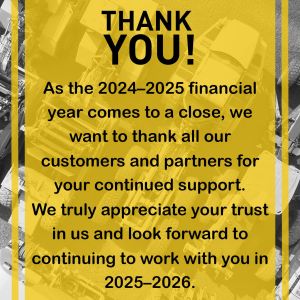Computer (or Mobile App) Games are usually seen as something anti-social, very time consuming, and almost evil. I don’t usually have the time to even try, but decided to take an interest in a game called Hayday that my kids enjoyed. It’s a Farming Commerce game, and I now encourage my kids to play it regularly. Why? Well, it’s actually teaching them the basics of running and growing a small business.
Everything from production planning to sales techniques. But most importantly, they build ambition and are constantly striving to “reach the next level” and learning the importance of developing good habits. The more regularly they do “good” things, the more rewards. And prioritising better efficiency/ better return investments gets them to their goals faster again. I’m hoping that subliminally they’re working out the secrets to success in business or even in life. Do things well, and develop a habit of doing it regularly.
When was the last time you actually had to think to dial a phone number on your phone? It just happened, right? Did you have to think the last time you punched some numbers on a calculator or key board? Yet most people probably haven’t realised that the numbers on a phone (1 at the top, 9 at the bottom) are reversed to those on a key pad (9 at the top). We’ve just repeated the habit so many times, it’s become second nature.
Why is this important? Because Habits can be taught, and bad habits can be replaced with good ones. We just need to give some thought as to if the current methods are the right ones, and if there is a better way of doing things.
Transport Habits
Most people would agree that our Transport systems are not good enough. The gripes vary from users being upset that the ticket price on Public Transport is too high at about $5 for an unreliable service at one end of the scale; to disgrace that this price is heavily subsidised by tax payers and only covers 36% of the delivery cost (and none of the capital cost) of providing the service at the other end of the scale.
It’s a welcome change that our State Government has started to look at the utilisation of our public transport runs. The six-month review has found that 52.8% (243,267 services per month) of bus services carry less than 7 passengers. Of those, 27,241 have one or no passengers on board – our own publicaly funded Stretch Limo service! The average across all services in Brisbane was 8.65 passengers, so on average mini-buses would suffice. 13,756 bus services were full to the point where people had to stand.
So nothing should be sacred when schedules are reviewed. This is a perfect example of where we’ve become lazy with monitoring where our money is spent and expect a service to be there, even when not needed or used. We need to challenge the Status Quo. No doubt the overfull services were in peak time, and many people are turned off trying public transport because they didn’t see it as working. So, out of habit, we all piled into our cars to clog up the roads instead – well, not such a large pile really, only 1.25 people per vehicle on average, the same as it’s been for the last decade – much like some of our buses.
The furore that surrounds delays at Airports (with Brisbane being the worst in the country) is made worse when the people owning the Asset don’t invest now in additional runway capacity because they don’t want to stump up the cash. In the mean time, our society bears the cost with un-recoverable hours lost, additional pollution, and other inefficiencies. These are perfect examples of why the Hard Asset Infrastructure (airport or railway tracks etc) should be owned by Government, but the Service delivery (multiple airlines paying to use the runways the most efficiently) can be privatised.
If the shoe doesn’t fit, change it
Many people are afraid of change and trying new things. Partly because we focus on what we may lose, more than see the opportunity of what we can gain. One of the biggest examples of bad habits and a reluctance to change them for better habits was the transition of Qld Health to a new payroll system. We tried to keep the old habits, when we should have developed new and better habits first. Any new software was never going to work when the starting point is fundamentally flawed: an average of 3 employees per pay condition, plus 200,000 manual variations to process per fortnight. It’s like individual employment agreements on steroids, but because of the “No disadvantage test”, can you imagine trying to align some of these awards? Why did we change between fancy high heels, when we should be changing to runners?
Vested Interests
Ever noticed how defensive people become when faced with changing habits? It’s often driven by a vested interest to stay relevant. We have some terrific go-getters in our business, and I always admire those who come up with ideas to make their own jobs easier. No, they’re not usually the lazy ones. They know that it’ll free them up to do more productive things, which is usually both more interesting and rewarding. For instance:
- Do you REALLY need all the forms in your business, or is it simply justifying relevance and lazy habits?
- why do Doctor’s perform many of the tasks that Nurses or pharmacists could do (and often do better)?
- why do many of our highly intelligent Lawyers go on to a life of filling out property conveyancing contracts and other Government mandated standard legal forms? Shouldn’t Jill Public be able to fill them out and understand them in the first place?
- why do large businesses and Government default to buying from the large OEM’s? Smaller, more agile specialist businesses (like ours!) can provide a terrific Value for Money option, and has to rely on providing quality and customer service to stay in business.
As always, onwards and upwards!
Fred Carlsson
General Manager



